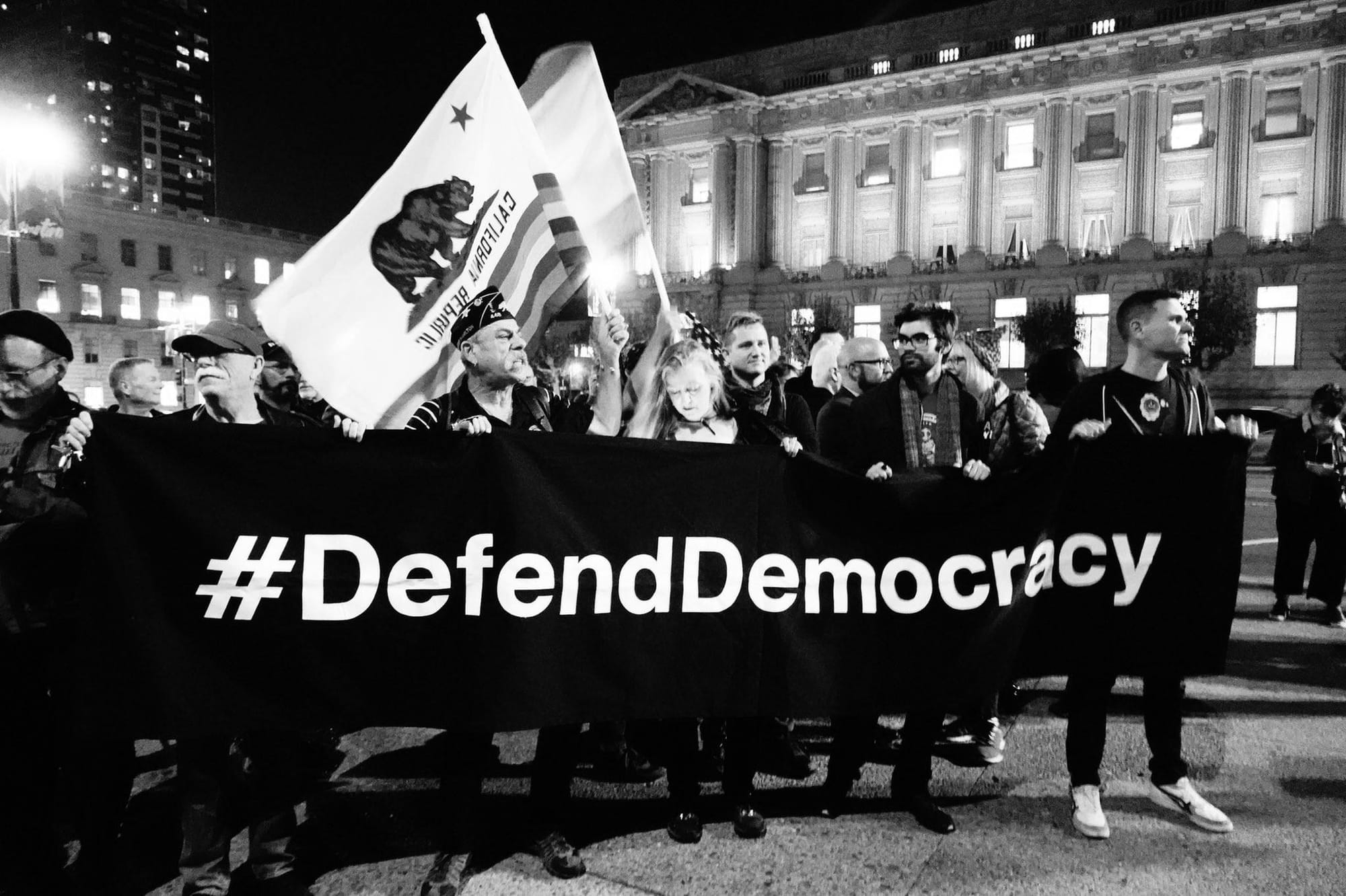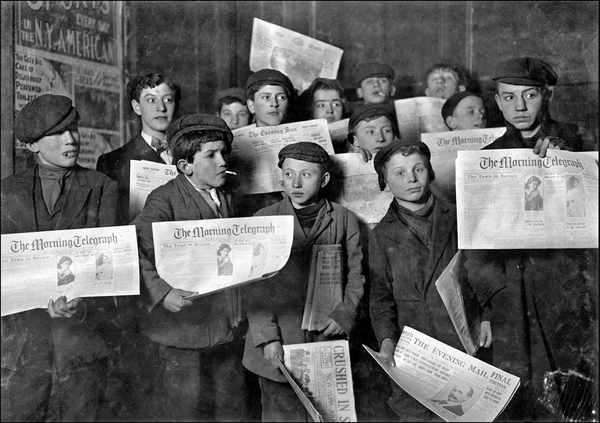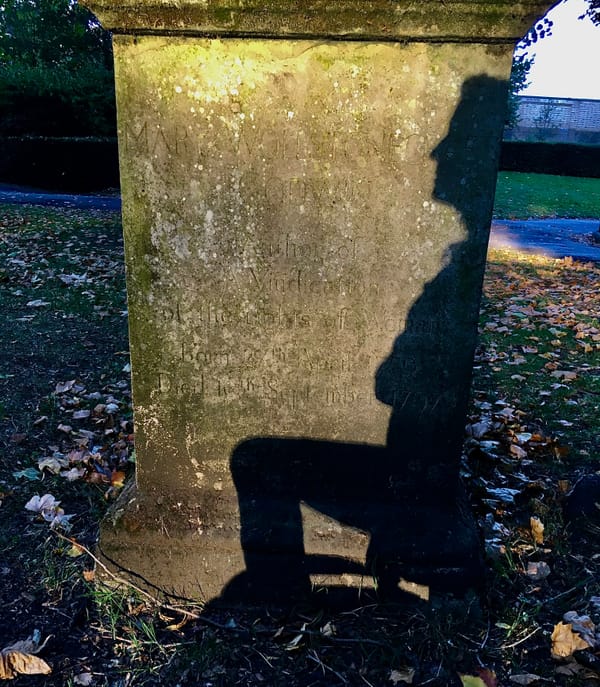On Not Surrendering in Advance (Or At Any Point Thereafter)
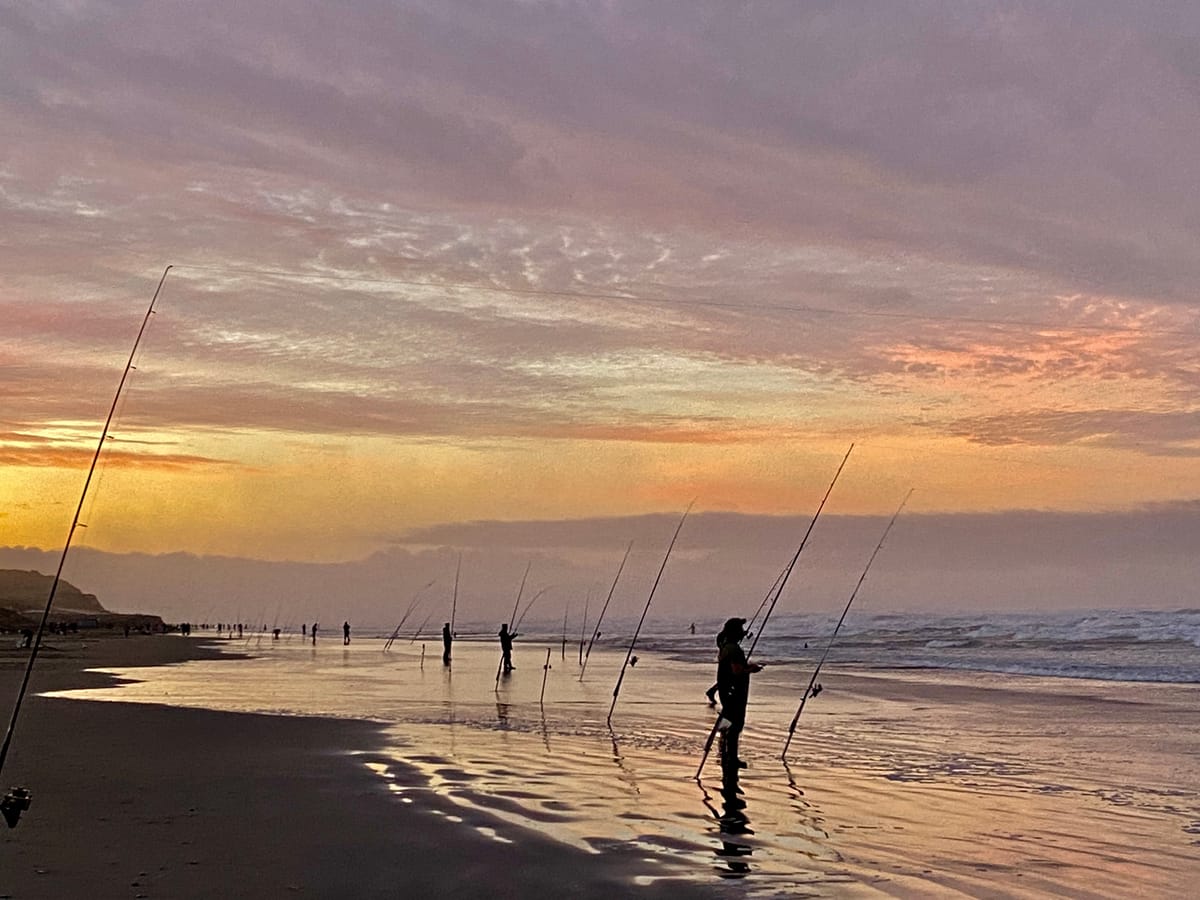
There's a reason why sports teams don't chant "I believe that we will lose" before a game, a reason so obvious that I'm pretty sure it needs no explanation in that context. Words have power. They not only describe but shape reality; we take vows – spiritual vows, marital vows, oaths of office, become accountable for our words when we testify under oath in court or in Congress or just make a verbal commitment. Our words shape reality when we tell someone they're worthless or valuable, beautiful or ugly, beloved or unloveable, which is a bit like chanting "I believe that you will win." Or lose.
A friend of mine reminded me that the word encourage literally means to instill courage; we can do that or its opposite with how we speak, with what we say, with how we show up. It's not the only work we can do during this emergency, but it's an important part of it. It's a big part of how we express a spirit of defiance, of resoluteness, how we act with the knowledge that emotions and attitudes are contagious, be they fear or courage, strength or weakness, kindness or cruelty.
Which is why it makes my head explode – picture this head as a volcano and these words as lava – when people surrender in advance verbally, which they do all the time about politics. There's a lot of "I believe that we will lose" on social media and in the news. One way it shows up is when journalists report on some of the rubbish spewing from the mouth of the geriatric clown/felon we have to call president as though his every utterance had the weight of law, as though words will become actions, as though the actions will succeed, as though they will not be met with opposition, as though they believe he will win.
The current case in point is: a few days ago, after the latest installment of his periodic ritual submission to Vladimir Putin, Trump said Putin told him to go after mail-in ballots. Now first of all, if one of the world's most dictatorial dictators gave a president of the United States advice on attacking democracy, that should have generated a lot of heated headlines and screaming politicians urging outrage in ways that have the power to put him on the spot and maybe make him walk it back.
Second of all, lots of stuff that Trump says is worthless ranting and raving. He has not issued that executive order. And if he does, it is a fact that the federal government does not set election rules; states do and always have going right back to the Constitution, Article One, Section Four: "The Times, Places and Manner of holding Elections for Senators and Representatives, shall be prescribed in each State by the Legislature thereof." Congress can weigh in on that; the president can't. And a whole lot of states are not going to surrender to an attack on voting rights, just like they haven't surrendered to a lot of other illegal, monstrous, and destructive executive orders, starting with the attack on birthright citizenship.
Don't take my word for it; take the word of my brilliant friend Tobias Barrington Wolff, a Constitutional law professor at University of Pennsylvania. He wrote on social media Monday, "The Orange Stinkpot does not have the power to ban mail-in voting nationwide by Executive Order. If he attempts to do so—as opposed to spouting off and then lurching to some other subject to spout off about — then it will cause uncertainty and risk suppressing the vote which is probably why he is doing it and is evil. But he does not have the power to do it and courts will stop it quickly."
But when I shared Tobias's excellent Monday post, a few people jumped onto that post to contradict the constitutional law professor, by asserting that Trump does have that power and generally went on as though his power is infinite, unlimited, unstoppable, and so forth: "I believe that he will win." Words not of lava but of sludge, since the actual record shows he's lost a lot.
If there is an executive order – and Tobias today wrote that he seems to be running away from it – it will be fought in court. One thing I know and Tobias knows and I hope you know is that Democratic-state attorneys general are fighting like crazy and a ton of stuff the Trump administration has attempted to do is tied up in court or the courts issued a temporary restraining order or the courts said "you fucking garbage in subhuman form, that shit you just did is grossly invalid," only in dull legal language.
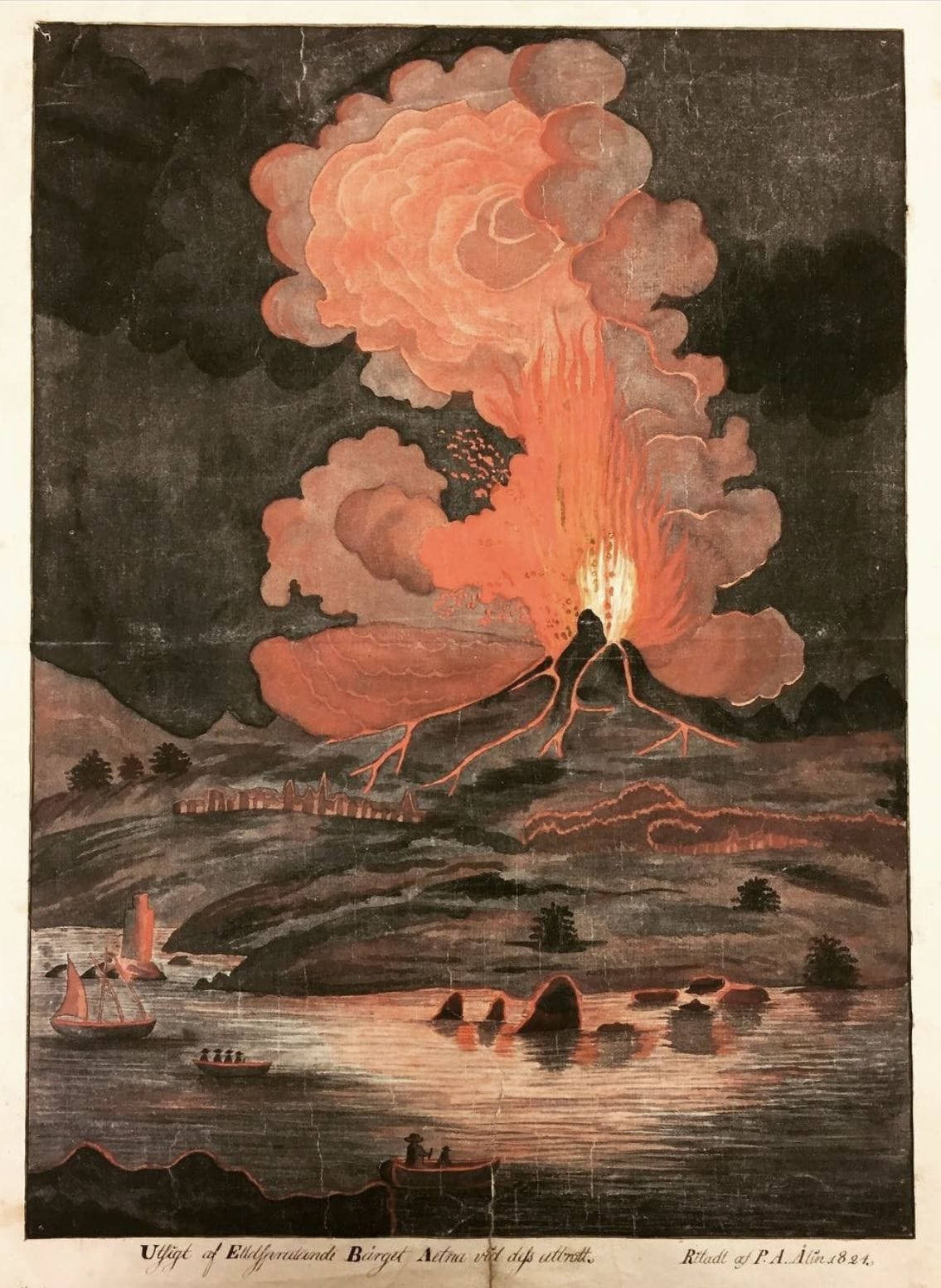
If you think the Trumpists are unstoppable, remember Kilmar Albrego Garcia, the family man legally residing in the US who was grabbed by ICE on March 15 and sent to that gulag in El Salvador? First the Trumpians said they had no power to get him back. Then one of his senators flew down to visit him and publicize the situation, the courts spanked them, and the Trump Administration brought him back on June 6. Then they sought to keep him in jail while smearing him as a terrorist, but a court said "fuck you to hell and back and the limo you rode in on," only in boring legal language, and he was released in mid-July.
Trump said a thing. The thing he said or rather spewed is not an executive order let alone the law of the land, just like the phone call he made to the Norwegian government saying he'd like the Nobel Prize won't get him the Nobel Prize (unless there's one for shameless stupidity I haven't heard about). If the executive order does come into being, it will be fought. By a whole lot of states. Who quite likely will win.
If you're going to surrender prematurely, you really really don't have to surrender that prematurely. Also why is it that people want to surrender so loudly? This has been a thing that always perplexed me about climate doomers and the whole premature-surrender crowd. If you believe that it is absolutely too late and there's absolutely nothing you can do – a worldview that makes the fossil fuel industry very happy – wouldn't it make you want to curl up quietly in fetal position, speaking of preemies, rather than trumpet loudly about it?
What is it about noisily enthusiastic, confident defeatists? Is it that they want everyone else to surrender with them so they aren't the only ones surrendering? Or is it that they are abandoning the very real power we have, to resist, to claim a power none of us actually have, to know the future? Because pretending you know what will happen is a worn-out excuse for not participating in determining what will happen. And we have power to do so. Not just in forestalling authoritarianism, because even if you think it's too late for that, we have countless examples of people who were amazing under authoritarianism, some of whom did win. Sometimes in big ways by toppling regimes, often in small ways by living with integrity, by protecting a person or a book or an idea or a principle.
Vaclav Havel famously declared – and his words written in something more glowing than lava, are worth revisiting today: "The kind of hope I often think about (especially in situations that are particularly hopeless, such as prison) I understand above all as a state of mind, not a state of the world. Either we have hope with- in us or we don’t; it is a dimension of the soul; it’s not essentially dependent on some particular observation of the world or estimate of the situation. Hope is not prognostication. It is an orientation of the spirit, an orientation of the heart; it transcends the world that is immediately experienced, and is anchored somewhere beyond its horizons. Hope, in this deep and powerful sense, is not the same as joy that things are going well, or willingness to invest in enterprises that are obviously headed for early success, but, rather, an ability to work for something because it is good, not just because it stands a chance to succeed."
But if you show up and do the work you might win – and part of winning is taking the attitude that, as Havel notes, what you can do is worth doing despite the fact that you can't know the outcome. At the very least you've won the battle of how to be the most heroic version of yourself. The power of authoritarians is not unlimited. The power of people under authoritarians is not nonexistent. Havel, it's really important to say, said those words when he was a playwright who'd been imprisoned multiple times for his outspoken opposition to the Czechoslovakian totalitarian state, which was itself dominated by the very USSR Vladimir Putin would like to recreate, including by fully annexing Ukraine (and erasing its threatening example of a diverse democratic former Soviet republic right on Russia's border).
It would have been outrageous of Havel at this point to believe that he could within a few years help topple the Czech regime and become its first president after doing so. And then he did. Don't let what you do be limited by what you assume is possible – what you do has to be governed by common sense and wisdom but those sometimes tell us to not assume we know the limits. The first rule of the future is that no one quite knows what it will be, and major changes not uncommonly emerge from players who were not long before invisible, dismissed, derided.
One of the ways attention to politics falls short is when it only pays attention to the federal government, not international, state, or local bodies, who also, for example, determine climate policy and other important matters. Or when it only pays attention to the high-profile rock-star equivalents in politics. Here in California, Governor Gavin Newsom – the tall guy with, admittedly, very good hair – is doing a fun rock star turn with his young press office headed by Camille Zapata (viva Zapata!) trolling madly in the mode of one Donald J. Trump. But the real rock star of California, as far as I'm concerned, is state attorney general Rob Bonta. (He has good hair too, by the way.)
Bonta's department issued this press release recently: "Since President Trump took office on January 20, 2025, California Attorney General Rob Bonta and the California Department of Justice (DOJ) have acted as a first and last line of defense against an onslaught of illegal executive orders, baseless actions, and wholesale dismantling of our government and the rule of law. Today, Attorney General Bonta reported on DOJs progress in safeguarding California's funding, protecting programs and services, and defending California's values amid ongoing illegal attacks from the Trump Administration. In just over six months, Attorney General Bonta has filed 37 lawsuits, leading or co-leading 23 of them, and separately filed more than 40 amicus briefs in support of other litigation against the Trump Administration. In the 19 cases where he has sought and a district court has ruled on early relief, he's succeeded in 17 of them, with 13 orders blocking President Trump's illegal actions currently in effect. He's also secured concessions and reversals outside of court, including the Department of Education’s recent decision to restore funding it had illegally frozen just days after California filed a lawsuit." That demonstrates that whatever you want to call Trump, unstoppable shouldn't be one of them. Though he does have the power to release the Epstein papers.
The Associated Press observed on August 8th on this handy chart: "The courts have agreed to block the president in a number of cases" and gave this score: "EXECUTIVE ACTION STATUS: Partially or fully blocked 110; Court left in effect 74; Pending 90." So much winning, a not inconsiderable majority of it by opponents of Team Trump.
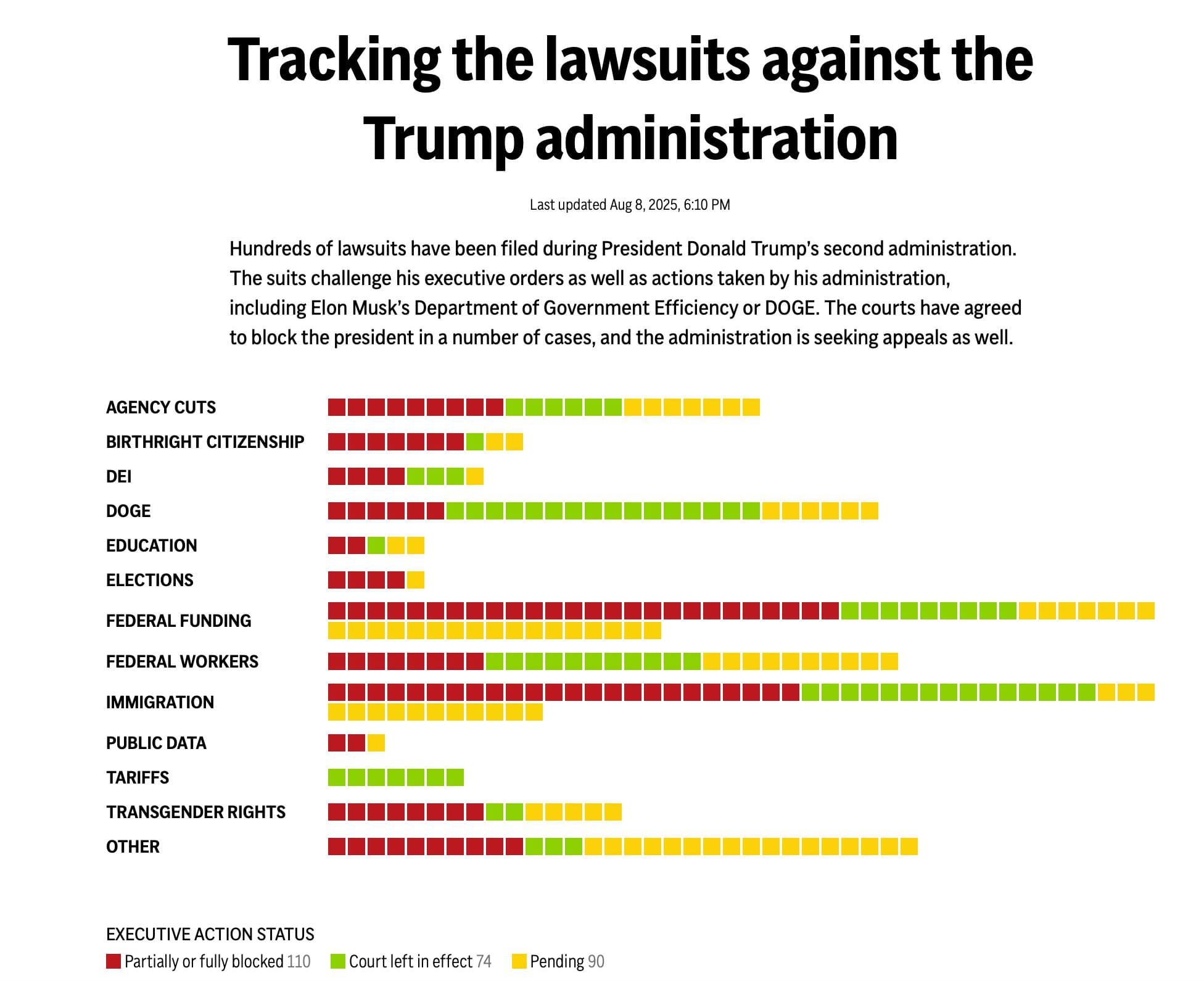
Even in the worst circumstances, people have power, the power to decide how they will conduct themselves in the choices that remain to them, and that includes the power of our words. Viktor Frankl, the Jewish psychiatrist who survived the Nazi death camp at Auschwitz, wrote, “Everything can be taken from a man but one thing: the last of the human freedoms—to choose one’s attitude in any given set of circumstances, to choose one’s own way.” My friend Jarvis Masters, who Governor Newsom should pardon, because he was wrongfully convicted and given the death sentence in the 1980s and has been in prison ever since, lives that beautifully, and when I'm lucky enough to talk to him, he has complaints, but he also has humor, generosity, compassion, a deep interest in life, and has not given up fighting for his freedom. He's showing that some essential part of him cannot be imprisoned.
This is a bleak time, a frightening time, but the people I'm addressing with this essay are not in Jarvis's or Frankl's situation, and we all have a role to play in trying to protect the rights of those who are being threatened or who are already in immigration gulags, to protect democracy, the climate, education, institutions, civil and human rights, including voting rights and freedom of speech. To be like the people in Columbia Heights, a neighborhood in Washington, D.C., who yesterday en masse chased ICE out of their neighborhood in a fearless show of solidarity. People, as Patti Smith reminded us, have the power, and there have not been more important times to remember it, to keep it, and to use it, with our words as in our deeds.
p.s. I'm using the word surrender as a variation on Timothy Snyder's clarion call right after the 2016 election, when he wrote his famous Twenty Lessons on Fighting Tyranny from the Twentieth Century, the first of which is: "Do not obey in advance. Most of the power of authoritarianism is freely given. In times like these, individuals think ahead about what a more repressive government will want, and then offer themselves without being asked. A citizen who adapts in this way is teaching power what it can do."
